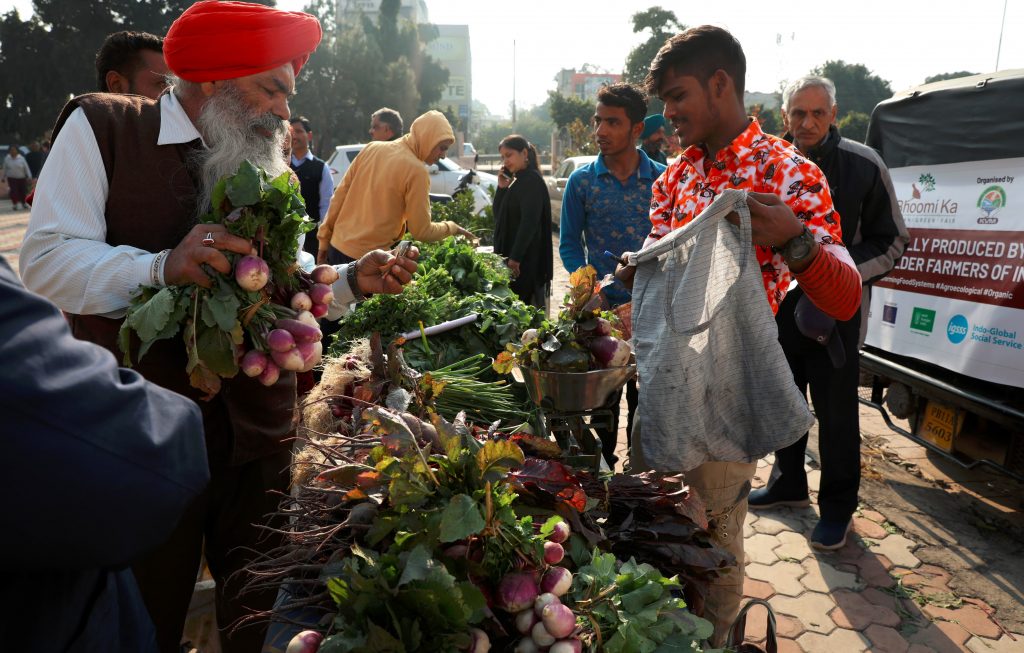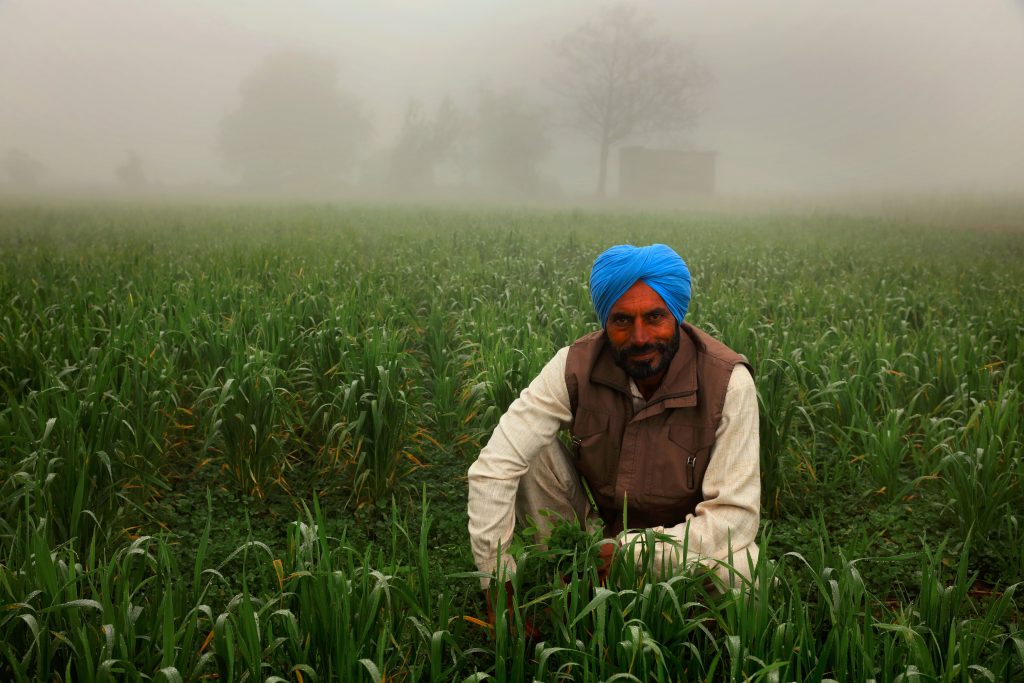Coronavirus pandemic hit India just at a time when its agriculture sector was looking forward to the harvesting season. In India, harvesting of Rabi crops normally begins after 14 April, every year. This year, an extended winter and the eventual nationwide lockdown gravely affected the agriculture sector, especially the smallholder farmers. Harvesting, transporting and finding a market were some of the serious challenges. Here, is an account of a few Bhoomi Ka supported farmers from Haryana and Punjab who were directly affected by the pandemic.
Lack of market and labour shortages
The nationwide lockdown announced on 24th March brought an immediate closure to the markets, disrupting supply chains and labour shortage. A substantial population of migrant labourers travelled back to their native villages around the beginning of the crisis. And a few others who stayed back could not work initially due to the lockdown and some were unwilling to work in the fields due to health risk factors. In the states of Haryana and Punjab, some organic farmers had to turn towards using machines like combine harvester and reaper in their fields.
Farmers cultivating perishable crops like fruits and vegetables paid a heavy price for the broken supply chain as their produce was left to rot in the fields. Rashpinder Singh Grewal associated with Bhoomi Ka from Sherpur Kalan village in Ludhiana, Punjab was unable to sell his harvest of potatoes and millets due to a non-functioning transport chain.
Organic farmer Sandeep Singh, son of farmer Sukhvinder Singh from village Mahru under Patiala district, associated with Bhoomi Ka, shared that vegetable growers suffered immensely during lockdown. “The vegetable mandis did not operate during the initial phases of lockdown, and it was not possible for us to reach out to buyers. Also, since we could not store all the perishable items, many of our produce were sold at throwaway prices”, recounts, Sandeep. Some farmers were even compelled to sell items like milk at reduced rates although consumers continued to pay a higher price.

Slight respite for survival
“One big respite was the support from mandi authorities facilitating selling of rabi crops amidst restrictions. Only five farmers were issued tokens every day to sell their produce in the mandis and the tokens were issued telephonically. All possible COVID-19 related guidelines were followed in the mandis”, recounts farmer Sarabjit Singh from Jhanda Lubana village of district Gurdaspur in Punjab. A few days into the lockdown, certain exemptions were announced by the government for the farming sector.
Jai Singh, a farmer supported by Bhoomi Ka in Ajrawar village in Patiala district of Punjab, says, “There was ample availability of labourers for harvesting work in the fields. Since there were no other livelihood opportunities in other sectors, eventually the labourers who stayed back took up work in farming sector out of desperation.”

Manveer Singh Redhu, in Jind in Haryana shares that farmers growing organic wheat and mustard, faced challenges in storing their harvest initially because their usual buyers could not reach out to them due to the lockdown. But with relaxation coming in place for transportation of essential commodities, situations did improve.
COVID-19 crippled farming economy across the country. Farmers following organic farming practices were struggling to reach out to their buyers. They are worried about shortage of skilled manpower needed for sowing for the coming season. This year, farmers may not be able to generate substantial income from the farms. However, low input costs and less dependency on loans is still a positive reassurance in their resolution to transform food systems in the country.



